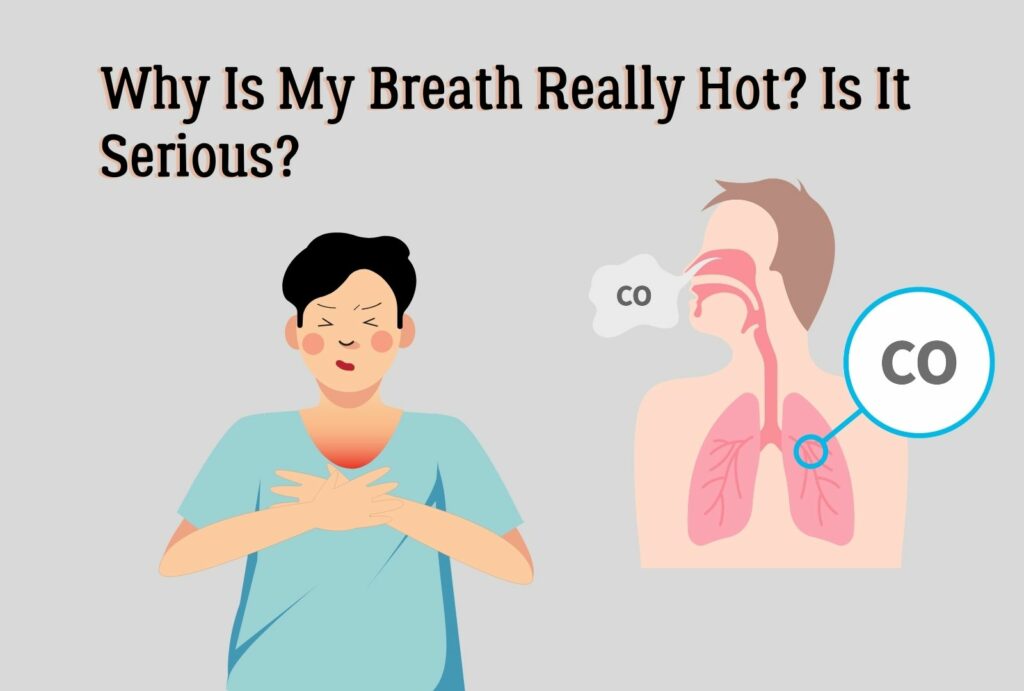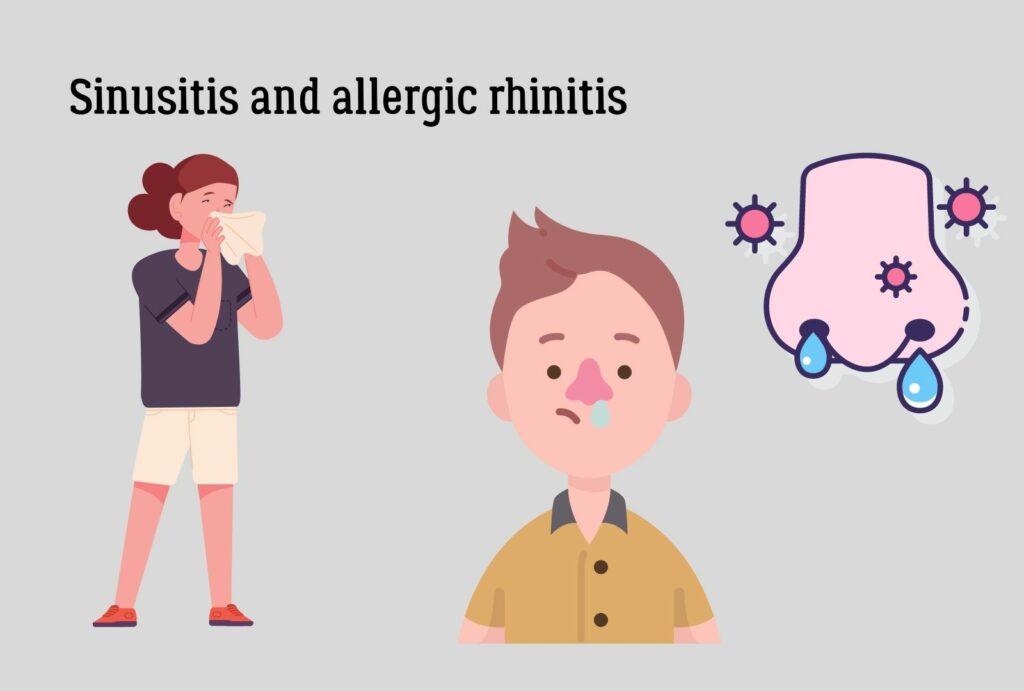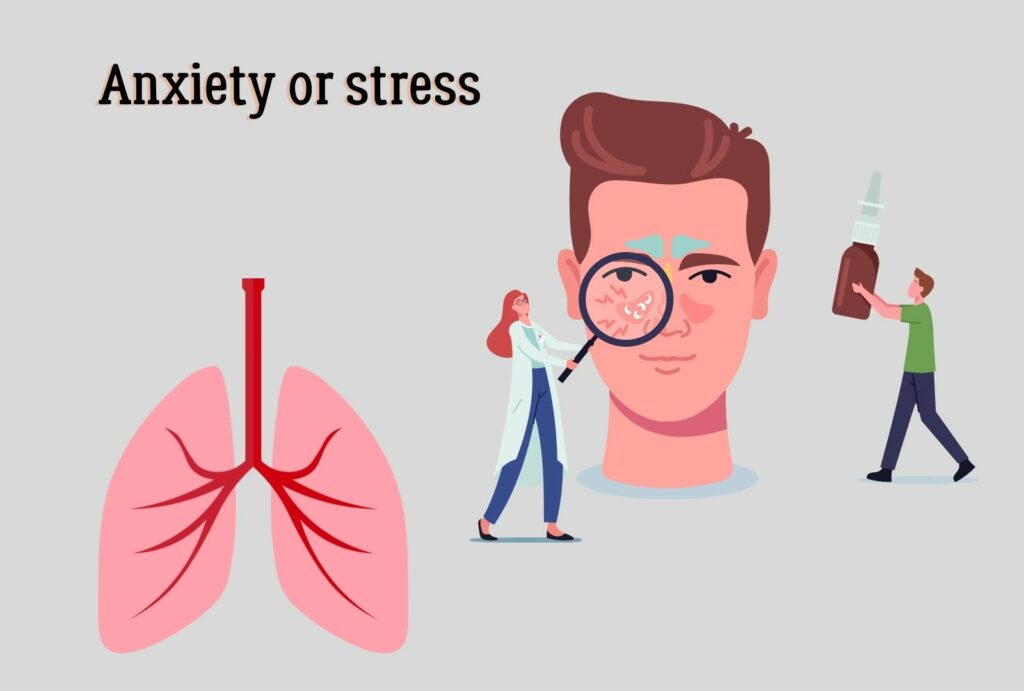
If you’re experiencing consistently hot breath, it may be a sign of an underlying health issue. While occasional bad breath is common, persistent heat in your breath could indicate a more serious problem.
Dry mouth
One possible cause of hot breath is a dry mouth. This occurs when your mouth doesn’t produce enough saliva, leading to a buildup of bacteria that can cause bad breath and a hot feeling in your mouth. Other potential causes of hot breath include infections in the mouth or throat, digestive problems, and certain medications.
While hot breath may not always be a serious issue, it’s important to see a healthcare provider if you’re experiencing this symptom. They can help determine the underlying cause and provide appropriate treatment options.
If you’re experiencing hot breath due to a dry mouth, there are steps you can take to alleviate the symptom. Drinking plenty of water and avoiding sugary or acidic foods can help promote saliva production, as can chewing sugar-free gum or using a mouthwash specifically designed to combat dry mouth.
If your hot breath is caused by an underlying medical condition, such as an infection or digestive issue, your healthcare provider may recommend medications or other treatment options to address the problem.
In summary, if you’re experiencing hot breath on a consistent basis, it’s important to see a healthcare provider to determine the underlying cause. While dry mouth is a common cause of hot breath, there are several other potential causes that may require medical intervention. Taking steps to promote saliva production, such as staying hydrated and avoiding sugary or acidic foods, can help alleviate hot breath caused by a dry mouth.
Fever
Fever is a common symptom that occurs when the body’s temperature rises above its normal range. It is often accompanied by other symptoms, such as sweating, chills, and a hot or flushed feeling in the body. One potential cause of a fever is an infection, but it can also be a symptom of other underlying health issues.
When a fever occurs, the body’s immune system is working to fight off an infection or other problem. This increased activity can cause the body to produce more heat, leading to a rise in temperature. As a result, the breath may also feel hot, as the body tries to cool down by increasing respiration and releasing heat through the breath.
It’s important to monitor a fever and seek medical attention if it lasts for an extended period of time or is accompanied by other concerning symptoms. High fevers can lead to dehydration and other complications, particularly in young children and older adults.
There are several potential causes of a fever, including viral or bacterial infections, autoimmune disorders, and certain medications or vaccines. A healthcare provider can help determine the underlying cause and provide appropriate treatment options.
Treatment for a fever typically involves addressing the underlying cause, such as taking antibiotics for a bacterial infection. Over-the-counter medications such as acetaminophen or ibuprofen can also help alleviate symptoms, but it’s important to follow the recommended dosage and seek medical attention if the fever persists.
In addition to medical treatment, there are steps you can take at home to help alleviate symptoms of a fever. Staying hydrated by drinking plenty of fluids and getting adequate rest can help the body recover more quickly. Applying a cool compress to the forehead or taking a lukewarm bath can also help reduce fever-related discomfort.
In summary, a fever is a common symptom that occurs when the body’s temperature rises above its normal range. It can be accompanied by a hot feeling in the breath, as the body works to cool down and release heat through respiration. It’s important to monitor fevers and seek medical attention if they persist or are accompanied by other concerning symptoms. Treatment typically involves addressing the underlying cause and may include medication, rest, and other self-care measures.
Sinusitis and allergic rhinitis

Sinusitis and allergic rhinitis are two common conditions that can cause a hot feeling in the breath. Sinusitis occurs when the sinuses become inflamed, often due to an infection, while allergic rhinitis is caused by an allergic reaction to substances such as pollen or dust. Both conditions can cause symptoms such as congestion, runny nose, and a feeling of pressure in the head.
In sinusitis, the inflammation of the sinuses can cause an increase in mucus production, leading to a sensation of congestion and a hot feeling in the breath. Other symptoms may include facial pain or pressure, headache, and a reduced sense of smell.
Allergic rhinitis, on the other hand, is caused by an allergic reaction to certain substances in the environment. These allergens can cause the lining of the nasal passages to become inflamed, leading to symptoms such as sneezing, runny nose, and a hot feeling in the breath. Other symptoms may include itchy eyes and throat, as well as fatigue or irritability.
Treatment for sinusitis and allergic rhinitis may include over-the-counter medications such as decongestants or antihistamines, as well as prescription medications such as antibiotics or nasal corticosteroids. In severe cases, surgery may be necessary to alleviate chronic symptoms.
In addition to medical treatment, there are also steps you can take at home to alleviate symptoms of sinusitis and allergic rhinitis. Keeping the nasal passages moist with saline nasal sprays or rinses can help reduce congestion and inflammation. Avoiding allergens, such as pollen or dust, can also help reduce symptoms of allergic rhinitis.
In summary, sinusitis and allergic rhinitis are two common conditions that can cause a hot feeling in the breath. These conditions are often caused by inflammation of the sinuses or nasal passages, and can cause symptoms such as congestion, runny nose, and facial pressure. Treatment may include over-the-counter or prescription medications, as well as self-care measures such as saline nasal sprays and avoiding allergens. It’s important to seek medical attention if symptoms persist or worsen over time.
Silent reflux
Silent reflux, also known as laryngopharyngeal reflux (LPR), is a type of reflux that occurs when stomach acid and digestive enzymes flow back up into the throat and larynx, causing irritation and inflammation. Unlike gastroesophageal reflux disease (GERD), which often causes heartburn and other digestive symptoms, silent reflux may not cause any noticeable symptoms in the digestive tract. However, it can cause a hot feeling in the breath, as well as other symptoms such as hoarseness, chronic cough, and sore throat.
The hot feeling in the breath associated with silent reflux is caused by the irritation and inflammation of the throat and larynx. This can cause a burning or prickling sensation in the throat, as well as a feeling of heat or warmth in the breath.
Other symptoms of silent reflux may include difficulty swallowing, a sensation of a lump in the throat, and a chronic hoarse voice.
Silent reflux
Silent reflux is often caused by a malfunctioning lower esophageal sphincter (LES), which is a ring of muscle that separates the esophagus from the stomach. When the LES is not functioning properly, stomach acid and digestive enzymes can flow back up into the throat and larynx, causing irritation and inflammation. Other risk factors for silent reflux may include obesity, smoking, and certain types of foods or beverages that can trigger acid reflux.
Treatment for silent reflux may include lifestyle modifications such as weight loss, avoiding trigger foods, and quitting smoking. Over-the-counter medications such as antacids or proton pump inhibitors (PPIs) may also be used to reduce the amount of acid in the stomach. In severe cases, surgery may be necessary to strengthen the LES and prevent reflux.
If you are experiencing a hot feeling in your breath or other symptoms of silent reflux, it’s important to see a healthcare professional for diagnosis and treatment. Left untreated, silent reflux can cause long-term damage to the throat and larynx, and may increase the risk of developing esophageal cancer.
In summary, silent reflux is a type of reflux that occurs when stomach acid and digestive enzymes flow back up into the throat and larynx, causing irritation and inflammation. It may not cause noticeable digestive symptoms, but can cause a hot feeling in the breath, as well as other symptoms such as hoarseness, chronic cough, and sore throat. Treatment may include lifestyle modifications, over-the-counter medications, or surgery, and it’s important to seek medical attention for diagnosis and treatment.
Anxiety or stress

Anxiety and stress can often lead to physical symptoms, including shortness of breath and increased heart rate. It is common for people to experience a hot or warm sensation in their breath during times of high anxiety or stress. This is because anxiety and stress can cause the body to release stress hormones like adrenaline, which can increase blood flow and body temperature.
When a person experiences anxiety or stress, they may also begin to breathe rapidly or hyperventilate. This can lead to the sensation of hot breath, as the rapid breathing can cause the body to lose heat quickly. Hyperventilation can also lead to a decrease in carbon dioxide levels in the blood, which can cause the blood vessels in the brain to constrict and further exacerbate symptoms.
It is important to note that while anxiety and stress can cause hot breath, it is usually a temporary and harmless symptom. However, chronic stress and anxiety can have negative impacts on a person’s overall health and well-being, so it is important to find ways to manage and reduce stress levels.
There are several ways to manage anxiety and stress, including practicing relaxation techniques like deep breathing or meditation, engaging in physical activity, and seeking support from a mental health professional if needed. It is also important to identify and address any underlying causes of anxiety or stress, such as work or relationship issues.
In some cases, hot breath may be a symptom of a medical condition related to the respiratory system or other bodily functions. For example, some medications or medical conditions like hyperthyroidism or menopause can cause hot flashes or sensations of heat in the body. If hot breath persists or is accompanied by other concerning symptoms, it is important to consult a healthcare professional to rule out any underlying medical conditions.
In summary, hot breath can be a common symptom of anxiety and stress, as well as other medical conditions. While it is usually temporary and harmless, it is important to manage and reduce stress levels to prevent long-term negative impacts on health and well-being. If hot breath persists or is accompanied by other concerning symptoms, it is important to seek medical attention.
FAQs
- Q: Can hot breath be a sign of a serious medical condition?
A: While hot breath is usually harmless and temporary, it can be a symptom of a serious medical condition in some cases. If hot breath persists or is accompanied by other concerning symptoms like chest pain or difficulty breathing, it is important to seek medical attention to rule out any underlying conditions.
- Q: Can anxiety or stress cause hot breath?
A: Yes, anxiety and stress can cause hot breath as a result of increased body temperature and rapid breathing or hyperventilation. Managing stress levels and practicing relaxation techniques can help reduce the occurrence of this symptom.
- Q: How can I manage hot breath caused by anxiety or stress?
A: Practicing relaxation techniques like deep breathing or meditation, engaging in physical activity, and seeking support from a mental health professional can all help manage hot breath caused by anxiety or stress. It is also important to identify and address any underlying causes of stress and anxiety.
- Q: Is hot breath a symptom of COVID-19?
A: While hot breath is not a common symptom of COVID-19, some people with the virus may experience shortness of breath or difficulty breathing. If you are experiencing any concerning symptoms, it is important to consult a healthcare professional and follow public health guidelines.
- Q: Can certain foods or drinks cause hot breath?
A: Yes, certain foods and drinks like spicy foods or alcohol can cause a sensation of heat in the body and lead to hot breath. Avoiding these triggers may help reduce the occurrence of this symptom.
- Q: Can medication cause hot breath?
A: Yes, some medications can cause hot flashes or sensations of heat in the body as a side effect. If you are experiencing hot breath or other concerning symptoms while taking medication, it is important to consult your healthcare provider. They may be able to adjust your dosage or prescribe a different medication.
The takeaway
Hot breath can be a concerning symptom, but it is not always a sign of a serious medical condition. In many cases, it is a temporary and harmless sensation that can be caused by a variety of factors including fever, sinusitis, silent reflux, and anxiety or stress. Understanding the underlying causes of hot breath can help you manage this symptom and identify any potential health issues that may require medical attention.
If you experience hot breath, it is important to monitor any accompanying symptoms and seek medical attention if you have concerns. While hot breath is usually harmless and temporary, it can sometimes be a sign of a serious medical condition like an infection or respiratory issue. It is always better to err on the side of caution and consult a healthcare professional if you are unsure.
Managing hot breath often involves identifying and addressing any underlying causes of the symptom. For example, if hot breath is caused by anxiety or stress, practicing relaxation techniques like deep breathing or meditation can help reduce the occurrence of this symptom. Similarly, avoiding triggers like spicy foods or alcohol can help reduce hot breath caused by certain foods or drinks.
In some cases, medication may be required to manage hot breath or any underlying medical conditions. It is important to work closely with your healthcare provider to identify the most effective treatment options and manage any potential side effects of medication.
Overall, hot breath is usually a harmless and temporary sensation that can be managed with lifestyle changes and medication in some cases. If you have concerns about this symptom or experience any accompanying symptoms like difficulty breathing or chest pain, it is important to seek medical attention to rule out any underlying health issues.